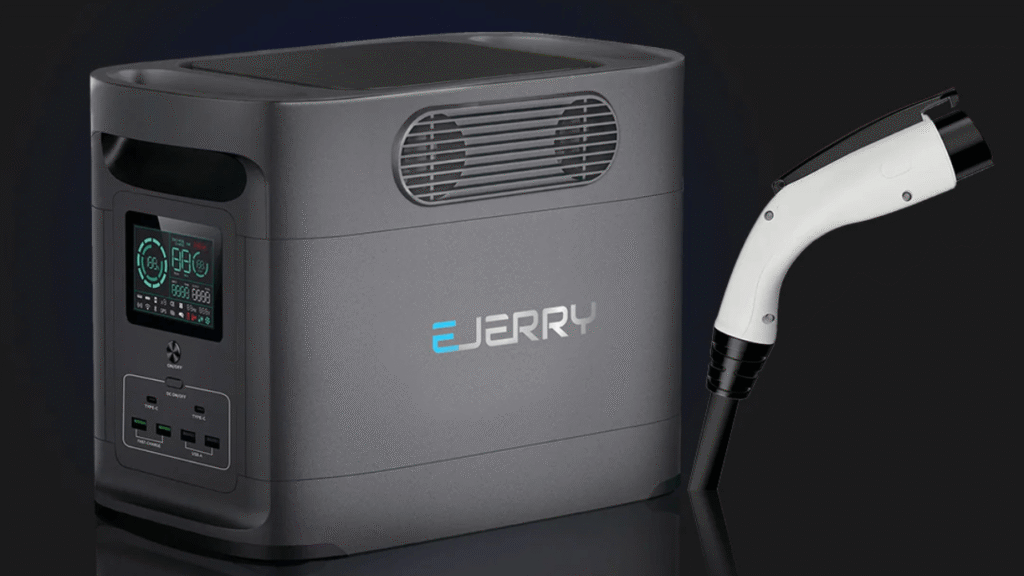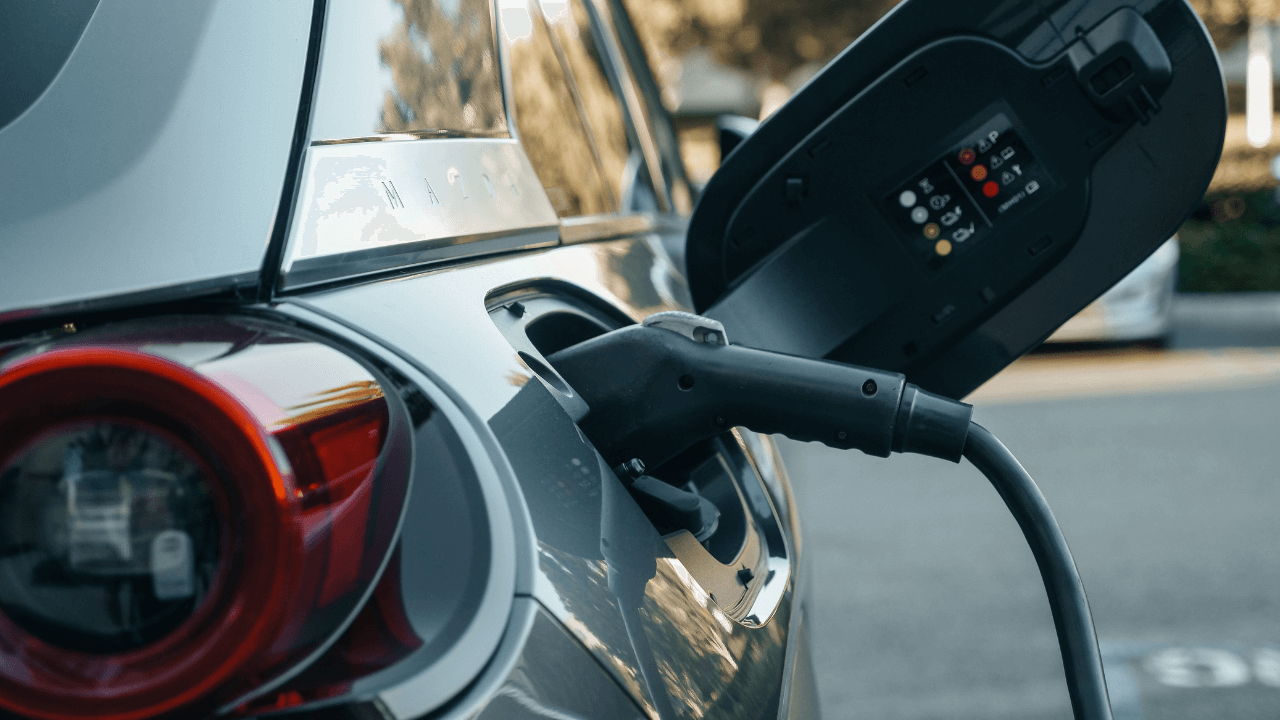EV Booster Batteries || How They are been Operated and how are they used
With the world going electric, range anxiety is one of the key issues that consumers continue to experience as they adopt electric vehicles (EVs). Although the latest EVs are becoming ever more efficient when it comes to the life and battery recharge times, most motorists have a somewhat restricted sense of range due to their cars not being able to go as long as they would like before requiring a charge. In comes the EV booster battery, which is actually a groundbreaking solution that helps to improve the functionality and distance of electric transport. In this paper, we are going to discuss what EV booster batteries are, how they operate, what kind of technology drivers them, what advantages they have, and the future of the hotly anticipated development in the EV industry.
What is EV Booster Battery?
Definition and working- Having a definition and working implies the possibility of working on a definition and having some working definition that is proposed or put into being.
An EV booster battery is a secondary power supply introduced to supplement the driving range of the electric vehicles. It works by giving the vehicle an extra jolt of energy to the main battery and will complement the performance of this vehicle in peak times like when going up steep mountains, when accelerating or when the main battery is dilapidated in its density. As opposed to other charging solutions, EV booster batteries are part of an integrated system designed to enhance EVs without having to be charged directly and indirectly via dedicated plugs.
These batteries are portable and can be integrated with the existing battery system of the vehicle so that the added charge can readily be drawn when needed and without interfering with the normal functioning of the vehicle. They can be re-charged either via regenerative braking, or via solar panels, or via the main charging system of the car.
EV Booster Battery Technology Technology
 Battery chemistry
Battery chemistry
An EV booster battery is very efficient due to the way it is designed and due to the chemical compound that is used. They are generally lithium-ion-based, as seen in conventional EVs, but they are not able to continuously produce energy like ordinary EV batteries; they instead give a brief and intense supply of energy. Some newer prototypes also can use solid-state technologies or lithium-sulfur technologies which have higher energy density, and so can be used in booster applications.
Even fast charge-discharge rates demanded by a booster battery exceed the normal battery usage and that is why special designs are required. These batteries have been designed to avoid the depreciation phenomenon of the traditional EV batteries even in such high demands situations.
Vehicle Systems integration
Another plus of EV booster batteries is the fact that they are not scared of the operating systems of the car. The cost of these is usually related to the regenerative braking system of the car where the battery may be charged during braking and deceleration. This combination means that the booster battery gets constantly refilled without having any more user intervention.
Moreover, the car can also have these booster systems installed in the energy management system of the car, and therefore it enables real-time tracking of battery health, charge levels, as well as power distribution. This integration makes the booster battery complement the main battery that is installed in the vehicle so that a maximum performance can be achieved without straining the system.
Advantages of the EV Booster Batteries
Higher ranges and Reduced Anxiety of Charging
The most salient advantage of EV booster batteries lies in the fact that those batteries allow increasing the reach of electric vehicles. One of the greatest obstacles to increased use of EVs is the range anxiety, especially in counties with less developed network of chargers. This problem can be solved with the help of booster batteries that can supply more power without the necessity to make more stops in order to charge the battery.
When equipped with the extra charge which is offered by the booster batteries, EV owners will have the ability to cover more distance on a single charge and thus long trips on the road will be possible without the pressure of needing to stop before reaching a power outroom.
Enhanced Performance
Besides extending the range of an electric vehicle, the EV booster batteries would help increase performance as well. The systems are meant to give a sudden power shock when it is needed like when starting a car at a stationary position or when climbing up a steep hill. This feature guarantees that electric cars can afford a high level of performance even in such scenarios when they are expected to utilise only the main battery.
Such performance enhancement is especially useful to EVs that are driven in mountainous regions or to people who drive more often on highways. The extra juice of the booster battery is capable of giving a smoother and more responsive drive.
Environmental Impact
One of the benefits that have been underestimated when it comes to EV booster batteries is that they can mitigate the general environmental impact of the EVs. These systems can help to decrease the total energy requirement of the EVs as they increase the driving range and minimize charging requirements. This is particularly so when the batteries are chargeable via regenerative braking or solar power which are lot more sustainable sources of energy in comparison to the regular chargers which are connected to a grid.
In addition, less range anxiety will promote the choice of EVs by many consumers and ensure fewer fossil fuels are used and the level of greenhouse gases is minimal. Footprints by the car-making business industry towards greener options will be greatly assisted by such properties as EV booster batteries.
Significant Issues and Considerations
Price and Implementation
Cost is one of the major issues when it comes to the implementation of EV booster batteries. The price of a vehicle also increases with the incorporation of another battery system into an EV, which is a bitter aspect that will convince some consumers not to purchase this capability. These systems can be costly with the battery itself being one of the costs and the research and development needed to build an efficient booster system.
Moreover, the manufacturers will have to make sure that the incorporation of the booster batteries will not unnecessarily complicate the vehicle properties. They need to make a balance between enhancing their performance and affordability to average customers by the manufactures.
Battery life and Resistance
Another thing to keep in mind is the longevity of booster batteries. They can also wear out more quickly than conventional EV batteries because these battery types tend to be charged and discharged quickly on a regular basis. The life of an EV booster battery, as is the case with any battery, is a critical issue that must be considered to make the system operate efficiently as time goes on. This challenge would require further enhancements in battery chemistry and systems of managing this energy.
Future Of Ev Booster Batteries
Inventions and innovations
EV boost battery has a good future. The booster batteries are likely to be even more efficient, durable and cheaper since battery-related technologies continue developing. Future developments in solid-state batteries that may provide more energy storage capacity and expedited charging times might make the use of booster batteries even more valuable as far as longer range and improved performance are concerned.
In addition, the adaptation of artificial intelligence (AI) and machine learning to vehicle energy management systems can result in power distribution between the primary and booster batteries which will be more intelligent. Such intelligent systems would make the best use of the energy so that the booster battery is utilised only when needed and would save the battery life.
This is what booster batteries in EV adoption do.
As the EV market expands even further it will be necessary to provide solutions to the EV adoption barriers, which will be an essential component: EV booster batteries. These systems can assist in making electric cars more attractive to more people by increasing the driving distance and enhancing performance. As people take a greater interest in longer-range, faster charging and higher-performance all electric vehicles, the potential exists that booster batteries will be used in future models of electric cars.
To sum up, EV booster batteries are a new fascinating trend in the world of cars, creating an escape of range anxiety and the overall improvement in the electric vehicles performance. Such issues like expense, battery life aside, the advantages of such systems are evident. With the rising technology and the reduction in the cost of production, the EV booster battery may turn out to be a key factor to the move towards the more stringent and effective electric vehicle industry. Things are looking bright in the future of EVs, and there is no doubt that booster batteries will be instrumental in the emerging future.
Expert Quote:
One of the most significant advancements when it comes to developing a cleaner method of transportation is the booster batteries that would make the electric vehicles more affordable and user-friendly to common consumers. Battery technology is changing constantly and we hope that these systems will be more efficient, reliable, and adopted by the whole industry.” Energy Solutions Expert: Sarah Johnson, PhD.


 Battery chemistry
Battery chemistry